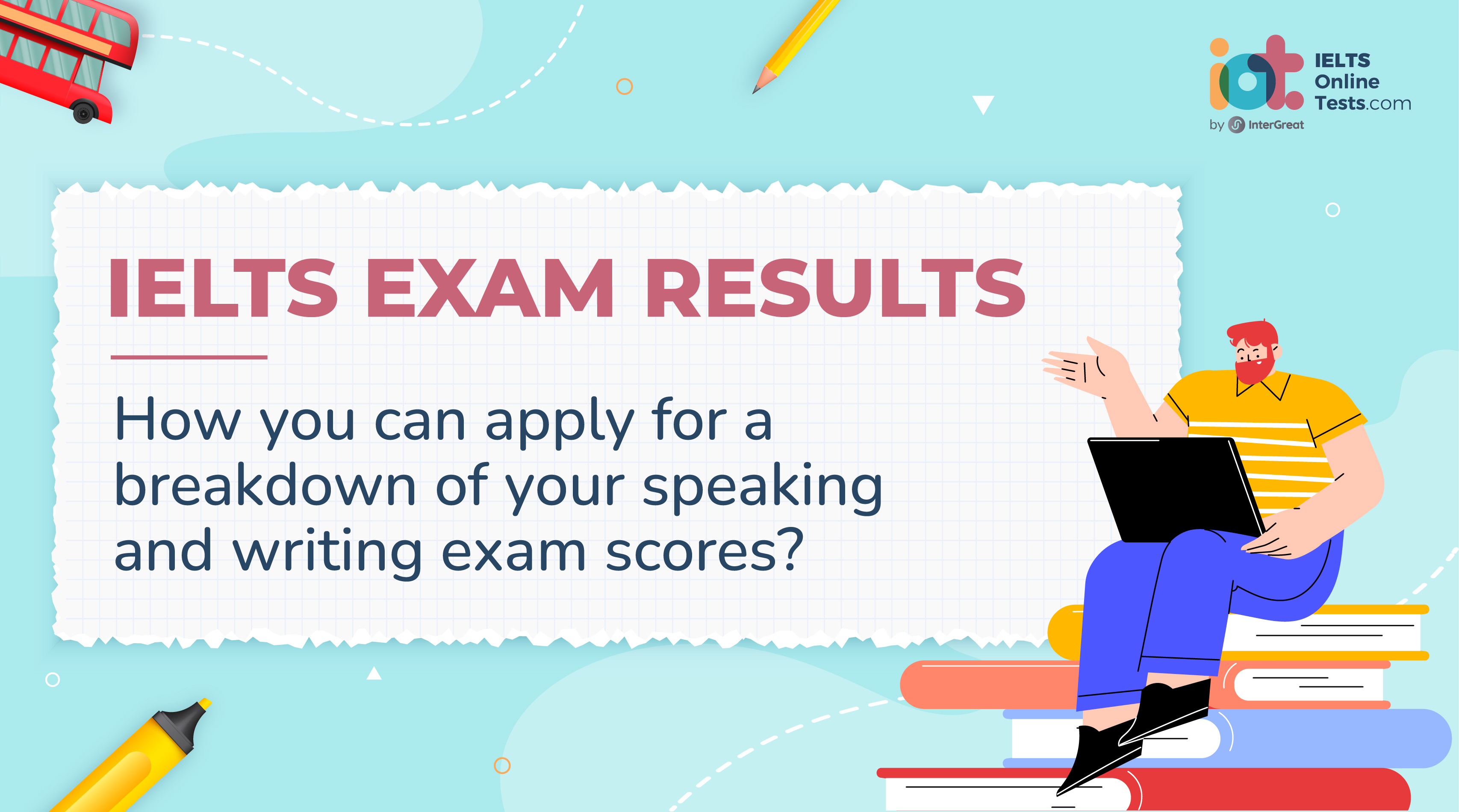
IELTS Exam Results: how you can apply for a breakdown of your speaking and writing exam scores
One of the main frustrations for IELTS test-takers is that IELTS does not provide a breakdown of the scores for writing or speaking. In other words, you know that you got a 6.5 for writing, but you don’t know why. Was it a problem with lexis? Did you write off-topic? Or was it your Task One that let you down? Until now the answer has simply been, only the examiner knows. IELTS exam results were essentially a black box.
What is the current situation regarding IELTS exam results?
One of the main problems that IELTS test-takers have faced for many years is that there is no explanation of their exam results. You are given an individual score for reading, writing, listening, reading, and an overall score, but there is no indication at all of why you were awarded these bands. If you get your required score, then this is not a problem. However, if you have taken the exam 3, 4, 5, or even dozens of times and are stuck at a 6.5 in one area, it can be very frustrating not understanding why and where you are lacking.
The “black box” of IELTS test results is one of the reasons why there are so many conspiracy theories about the exam. Many students who are able to achieve a 7.5 or even an 8.0 in speaking but keep scoring 6.5 in writing again and again start think that something unfair is happening – they feel that the exam is “fixed” and that test centres are “fixing’ their scores.
Obviously, this is not happening, but it is easy to understand why students feel that it might be as there is so little transparency to the scores. If a student could see that in every exam they had scored highly for Grammatical Range and Accuracy and Lexical Resource but had scored poorly for Task Response and Coherence and Cohesion, they may start to understand that the problem lies in their academic skills, and that there is a genuine reason for their low score.
Why don’t IELTS currently provide a breakdown of exam results?
Honestly, I am not sure. My gut feeling is that it is to protect exam security. The more information that is revealed about a particular exam, the less secure it is in terms of students being able to cheat. Although Cambridge has created a massive bank of exams, questions are recycled and used again. If every test-takers was told, for example, how many questions they got right in a particular reading exam, this information could be used to work out the answers for a particular passage (assuming that a number of students could accurately remember their answers and compare them).
Another factor may simply be time and cost. Simply providing the final score is quicker and easier than generating a breakdown for each student. However, now that almost all test papers are marked online in giant marking hubs, this seems less reasonable than when each paper was marked at the original test centre.
How was your student able to get a breakdown of their IELTS exam results?
As you can see in the link below, the document contains a breakdown of Writing Task One and Writing Task Two and Speaking. In other words, the student can see exactly where they went right and wrong in each section of the band descriptors for each test: http://link.intergreat.com/fx64N
How can I apply for a breakdown of my IELTS exam results?
You can find all of the information about Data Protection in the British Council on this page: https://www.britishcouncil.org/privacy-cookies/data-protection. Applications should take about 4 weeks to be processed, but my student got her breakdown withing 7 days, so they seem to be very responsive (although this may change in the future if more people apply). However, the language is quite legal and might be confusing for many students, so let me give you a simplified guide.
You will need to send an email to IGDisclosures@britishcouncil.org. In the email, you will need to include:
- Your name and proof of your identity (i.e. you can attach a copy of a passport)
- Your test date
- The name and address of the centre where you took the test (and the test centre number if you know it)
- The areas of the test that you would like to be broken down. If you look at the document that the student received, it says N/A for listening and reading, this is because she did not want to a breakdown for these. You are welcome to ask for all areas of the test though.
Here is a template of the email that you will need to send. All you need to do is copy and paste it, and add your personal details:
Dear British Council,
My name is ________ . In accordance with the GDPR, I am writing to ask for a breakdown of my IELTS scores for the following exam:
- Test Date: _______________
- Test Centre Name and Number: _______________
- Test Centre Address: _______________
- Computer based OR Paper-based
- Areas of the test I would like all stored information about: Writing, Speaking, Reading and Listening
I have also attached a copy of my passport so that you can confirm my identification, but please do not hesitate to contact me i you need any other information to process my request.
Many thanks,
_______________
Can you also apply for a breakdown if you sat your exam with IDP?
Again, GDPR is designed for use in the EU and IDP is an Australian country so I am not sure if they are also bound by the law. However, my feeling is that they should be as they also operate in Europe. Again, the only way to know is to try! If you do try, you should email privacyofficer@idp.com.




